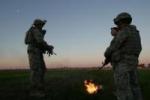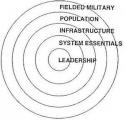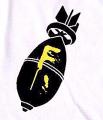
Originally Posted by
BayonetBrant

Something I just wanted to throw out as a point of conversation. There does need to be some clarity in terminology at some point. "Education" is probably expected to be some form of holistic type of intellectual improvement.
I would like to propose one delineation within the terminology, and that is the difference between "training" and "learning".
"Learning" would be new skill acquisition: I don't know how to knit, and therefore would need to learn how to knit. It's a new skill. Similarly, although I know a bit about statistics, there are still many things to learn, and although I know something about structural equation models, there's still more I could learn.
"Training" would be skill rehearsal: I'm am practicing something I already know. I've fired a lot of M16s/M4s. Going to the range isn't learning for me, it's training.
Now it's possible to train one thing while learning another - training squad patrolling while learning about cultural sensitivity or IED reaction drills.
I just wanted to throw out an idea to try and keep the vocabulary cleaned up a bit, rather than argue over how people are using certain synonyms for similar, but distinct, concepts.
Thoughts?






 .
.


 ).
).
 ). In terms of internalizing a piece of knowledge, hearing it in a story with emotions attached is much more memorable (anywhere between 50% and 800% [yes, that's not a typo - eight hundred] according to Bateson). This, BTW, is one of the reasons why "fairy tales", at least in their original forms, tended to be so gruesome - they were designed to tie an emotion into an action sequence.
). In terms of internalizing a piece of knowledge, hearing it in a story with emotions attached is much more memorable (anywhere between 50% and 800% [yes, that's not a typo - eight hundred] according to Bateson). This, BTW, is one of the reasons why "fairy tales", at least in their original forms, tended to be so gruesome - they were designed to tie an emotion into an action sequence.
 ) is Blooms Taxonomy where the lower levels tend to refer to training while the higher orders tend to refer to education.
) is Blooms Taxonomy where the lower levels tend to refer to training while the higher orders tend to refer to education. 

Bookmarks